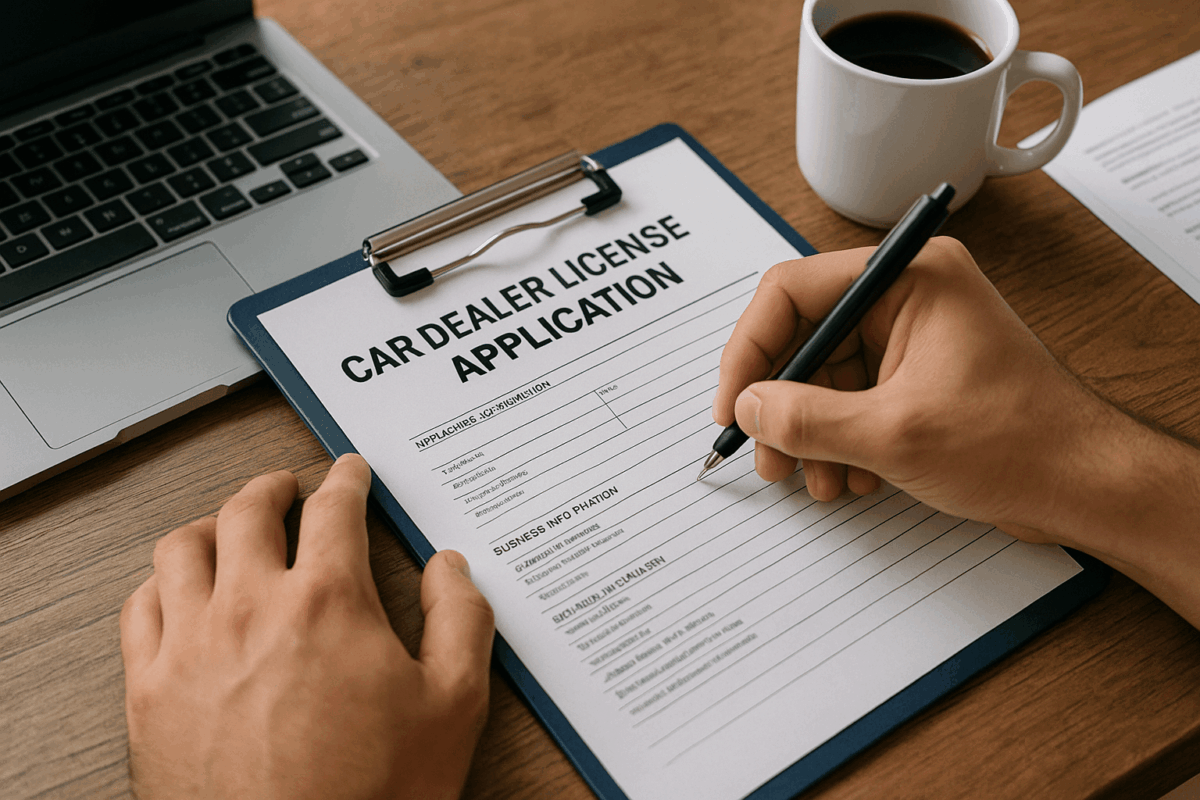Getting Your Vehicle Title After a Car Auction Purchase
Public auto auction Texas events promise great deals. But once the gavel falls, another question emerges: how long does it take to get title from auction? The answer isn’t always simple. Some buyers receive titles in a week. Others wait several weeks or more, facing delays that derail registration, resale, or even legal use. Buying from a reliable car auction Las Vegas location may help avoid surprises—but even top-rated sellers face challenges tied to state regulations, seller delays, and title transfer backlogs.
Buying from a reliable car auction las vegas location may help avoid surprises—but even top-rated sellers face challenges tied to state regulations, seller delays, and title transfer backlogs.
Why Auction Titles Take Time to Arrive
⚠️ Expect delays if paperwork is incomplete or the seller hasn’t cleared all obligations.
Every car auction must coordinate between the auction house, previous owner, and the department of motor vehicles. Delays stem from:
- Unresolved outstanding liens
- Incomplete documentation
- Pending legal actions on the vehicle
- Errors in seller paperwork
- Delays from the insurance company or bank
- Backlogs in the DMV’s title transfer process
In many cases, the title can’t legally transfer until these steps are finalized. That means even a winning buyer has to wait.
Average Title Delivery Timelines by Auction Type

| Auction Type | Best Case | Worst Case | Notes |
| Public Online Auction | 5 business days | 6–8 weeks | Depends on title status and payment |
| Dealer-Only Online Auction | 3–10 days | 3–4 weeks | Auction house’s efficiency is critical |
| In-Person Public Auction | 7–14 days | 6+ weeks | Often faces process and seller lags |
| Salvage Vehicle Auction | 2–6 weeks | 8–12 weeks | Rebuilt title or salvage title processing delays are common |
Tip: Choose auctions that list “title in hand” for faster turnaround.
Key Factors That Influence How Long You’ll Wait
🛠 Multiple factors affect title processing times.
- State’s title transfer process and backlog
- Auction house and its internal workflow
- Vehicle’s history, including prior ownership disputes
- Lien status on the car
- Whether the sale includes necessary documentation
- If the car title is already digitized or needs replacement
- Seller’s ability to finalize the deal quickly
“The best-case scenario still relies on cooperation between all parties. Even small delays can ripple,” says auction expert Tanya Meyer.
How Auction Houses Handle Titles
Let’s compare two real-world examples.
Case A: Efficient Processing
A buyer wins a clean title sedan at an in-state car auction. Payment clears in 24 hours. Title, already held by the auction house, is sent within 3 business days.
Case B: Delayed Title Transfer
A buyer purchases a vehicle with a “title pending” label. The seller’s loan payoff is incomplete. Documentation arrives two weeks later. The title transfer process takes an additional month.
🗣 “Buying from auction platforms with in-house title teams often cuts delays in half,” notes vehicle title consultant Jamal Reyes.
Step-by-Step: What Happens After You Win the Auction
- Payment processed by the auction
- Auction contacts seller or lienholder for car title
- Seller provides documentation (or clears lien)
- Auction house prepares title transfer
- Documents sent to the department of motor vehicles
- DMV reviews and processes title
- New title issued and mailed to new owner
Each step faces risks—missed paperwork, state’s processing times, or missing proof of ownership can slow the entire transaction.
How to Track or Speed Up Your Title Delivery

- Contact the auction house via support
- Ask for tracking on title shipment
- Check title status with the DMV
- Use VIN tools to confirm any salvage or rebuilt title
- Submit missing documentation quickly
- Request a temporary registration (if allowed)
- Send a follow-up email:
Subject: Request for Title Status Update – VIN [YOUR VIN] Dear [Auction House], I’m writing to request an update on the title status for the vehicle purchased on [DATE] with VIN [VIN]. Please confirm current processing stage and estimated delivery timeline. Thank you.
Special Cases That Take Longer to Process
🚧 Some titles involve additional legal steps or state-level hurdles.
- Salvage title cars often require inspections or rebuild certifications
- Rebuilt title cases must be evaluated for safety compliance
- Out-of-state titles can get delayed during interstate transfer
- Repossessed vehicles may involve insurance company liens
- Vehicles marked as total loss require extra forms and may face registration blocks
Each of these adds potential delays to your title timeline.
Can You Drive Without a Title? (And Should You?)
⚠️ Driving without a title is legally risky.
Most states won’t allow registration without a vehicle title. However, you may be able to:
- Apply for a temporary permit or tag
- Use a bill of sale as short-term documentation
- Get bonded insurance—though it won’t replace a legal document
Still, skipping the title leads to trouble. No title = no car ownership.
Understanding the Role of DMV in Title Processing
The Department of Motor Vehicles (DMV) is a crucial participant of the title transfer procedure. Imagine: a person purchases a car at an auction. After that, the buyer should necessarily address the DMV. This, certainly, adds time to the process. The DMV checks the vehicle’s history, verifies ownership, and ensures that all legal requirements are met.
In some states, state regulations may require additional forms. This may be, for instance, the proof of insurance. Such forms are necessary before issuing a new title. During peak seasons, the DMV may experience processing delays. In other words, you might be stuck waiting longer than expected for your title to arrive.
What to Do if You Haven’t Received Your Title
Sometimes, receiving your title may be delated. In this case, first of all, start by contacting the auction house. You need to inquire about the status of the title transfer. They may have encountered an issue with paperwork or seller cooperation.
If you still have no response, feel free to follow up with the DMV. You can check whether they’ve received the paperwork. To prevent further delays, don’t hesitate to check the status of your title .
Auction Title Issues: Common Pitfalls to Avoid
Obtaining a title from an auction is straightforward. However, there are common pitfalls that many buyers face. One frequent barrier is purchasing a vehicle with an unresolved lien. These liens must be cleared before the title transfer can be processed. Otherwise, they delay the entire process.
Another common issue is purchasing a salvage title vehicle without realizing the additional paperwork and inspections required. Salvage title cars often involve lengthy DMV checks and re-certifications. All these procedures can delay your title. Ensure that you understand what type of title the vehicle has before placing a bid.
Tips to Avoid Title Trouble at Your Next Auction
During car auctions, a smooth title transfer can make or break the deal. Here are some tips to protect yourself:
- Verify the title status before bidding.
- Ensure it’s clean, salvage, or rebuilt as per your needs.
- Ask the auction about the title’s current status.
- Avoid “title pending” vehicles.
- This term often signals paperwork delays. Make sure the auction has full rights to transfer title immediately.
- Double-check lien status.
- Ask whether the vehicle has any outstanding liens. An outstanding lien could delay your title transfer indefinitely.
- Confirm seller information.
- If the auction house is a dealer, they often handle title transfers quicker and more efficiently.
- Keep all documentation.
- Don’t lose or misplace the bill of sale, your purchase contract, or any other proof of ownership. It’s essential for title applications.
Final Thoughts: Be Informed and Patient, Not Surprised
The title transfer process can be frustratingly slow. However, it’s in your hands to do it avoid this. Approach the procedure with preparedness and the right expectations to navigate it successfully.
Proactive research is crucial. Verify the auction house’s efficiency and ask the right questions about title processing timelines. Not all car auctions are created equal; some are quick to ship titles, while others face repeated delays. Remember, your patience can be rewarded with a smooth ownership transfer.
FAQ Section
- How long does it take to get a title from a car auction?
Most buyers receive it within 2 to 8 weeks. The term depends on the auction house and DMV timelines.
- Can I register a car bought at auction without a title?
Usually not. Most states require a title unless a bonded title or court documentation is available.
- What does “title pending” mean when buying a car at auction?
It means the auction is awaiting the title from the seller or lienholder. Expect delays.
- Can I drive the vehicle before receiving the title?
Only with a temporary tag if your state allows it. Driving without legal documents is risky.
- Why do auction titles take longer than dealer purchases?
Dealers have direct DMV access and fewer parties involved. Auctions depend on seller follow-through.
- What if the auction never sends me the title?
Contact them immediately. If unresolved, file a DMV complaint or pursue a bonded title.
- Are some auction houses faster than others at sending titles?
Yes. Auctions that list “title in hand” and process in-house are usually quicker.
- What is a bonded title, and when should I apply for one?
It’s used when ownership can’t be proven. You apply with the DMV and a surety bond.





